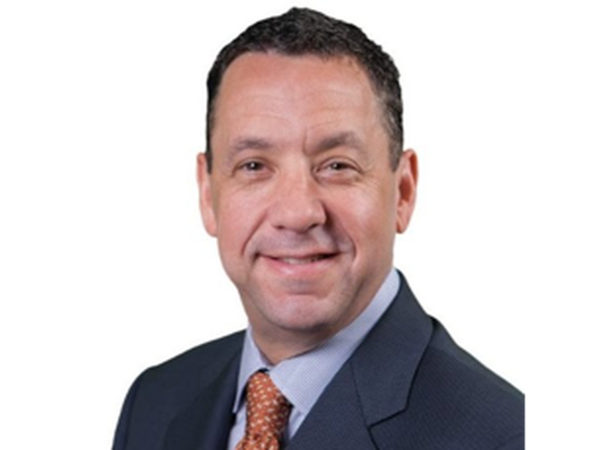David Furman of Hyster-Yale Group
In our continuing series of discussions with top supply-chain company executives, David Furman discusses the lift-truck market and the emerging technologies that will drive the future of forklift design.

David Furman has been working for more than 25 years in marketing and business development, including nearly a decade in the material handling industry. He currently serves as president of marketing, strategy, and business development at Hyster-Yale Group. In this capacity, Furman leads his company’s sales efforts for lift trucks, aftermarket, financing, and fleet management programs to solve the material handling challenges of end-users. He holds a bachelor’s degree from Ramapo College of New Jersey and an MBA from Binghamton University in New York.
Q: How do you view the current state of the lift-truck market?
A: As an industry, we’re coming off of two years—2017 and 2018—with new highs in total unit sales. The long-term trend of electrification has stabilized, and emerging technologies are redefining what lift trucks can do. While there was a bit of a dip in 2019, the lift-truck market remains robust, especially with e-commerce accounting for a greater share of total retail sales and, in turn, driving growth in warehousing, distribution, and fulfillment.
Q: You have worked in business development for forklift companies for the past decade. What major changes have you seen in the industry during that time?
A: There have been changes to both the products we’re selling and who we’re selling them to. With the emergence of technologies like advanced motive power, robotics, operator assistance, and telematics, the lift truck has really become a technology integration platform. In that sense, it’s a disruptive time for the industry as traditional lift-truck OEMs like us need to become more like technology companies. Our task is to apply those emerging technologies in ways that address the pressures our customers feel from e-commerce, labor challenges, sustainability targets, and more.
Conversations with customers are evolving, too. There’s a greater focus on their business challenges and how they can be solved by different technologies integrated into lift-truck solutions, rather than just looking at the feeds and speeds of the truck. We’ve seen the rise of the so-called “self-educating buyer,” with easily accessible product information online changing the role of the salesperson. In light of that, we’ve taken steps with training initiatives to better equip sales personnel to deliver value as more consultative resources with expertise in target industries.
Q: What areas are Hyster and Yale concentrating on for expanding their market reach and serving their customers?
A: Emerging technologies are an opportunity to expand our value chain beyond the core lift truck, using it as a technology platform to integrate robotics, operator-assist systems, telematics, and more to create value-added solutions. This approach can open up new opportunities within our existing customer base and more generally, allow us to tap into a supply chain technology market that’s ready to expand.
With the rise of online commerce and associated supply chain investments, the warehouse is an important growth target for us. We have new products for that market, including end rider models that debuted for both brands last year, and we are working with Honeywell Vocollect to offer pallet trucks controlled by voice, designed to improve efficiency in low-level order picking.
We’re also filling out the product range of both brands with more simple, cost-effective solutions designed for customers who value low total cost of ownership and acquisition. The goal here is to provide the right truck at the right value to match the needs of each market segment—from simpler solutions all the way up to premium heavy-duty products.
Q: In what ways do the Hyster and Yale brands work together to bring products to market?
A: Looking at Hyster-Yale Group and our brands in the context of the rest of the industry, we’re somewhat unique. Both brands have nearly a century of history in the lift-truck business, and at a corporate level, material handling is our exclusive focus.
That’s important to consider when looking at how the Hyster and Yale brands benefit from investments we make at a corporate level. This includes research and development efforts, our hydrogen fuel cell holdings, relationships with robotics companies, attachments for specialized applications, and more. The core focus of our company has always been to transform material handling through groundbreaking innovations, and the brands are how we deliver those technologies to serve specific industries and customer requirements.
Q: Are there any particular projects you are working on that you wish to share?
A: With digital access ubiquitous, customers can interact with our brands and dealers anytime, anywhere. For that reason, we need to be very intentional about providing a cohesive, unified brand experience for customers, which includes a tight integration with our dealers. They’re on the front line and are responsible for much of a customer’s experience with our brands. In fact, the dealer piece is such a big part of the customer experience that it’s going to rival product as one of the biggest differentiators between lift-truck brands.
With the lines blurring between OEM and dealer, making sure we’re aligned and acting as one is crucial to providing a seamless, positive brand experience to the customer. To that end, we’re working to foster tight-knit factory-dealer relationships through training efforts, marketing support, sales and finance promotions, and more. One example of this is our industry-specific sales and marketing teams, which assist dealers with extra resources and expertise on specialized projects.
Q: What technologies do you see as being key to the future of lift-truck design?
A: Operator assistance, robotics, and motive power are all key technologies for lift-truck design. With low unemployment and high turnover in the warehouse, the market values solutions that can help businesses get maximum value from limited labor resources and boost overall efficiency.
Related Articles

Copyright ©2024. All Rights ReservedDesign, CMS, Hosting & Web Development :: ePublishing